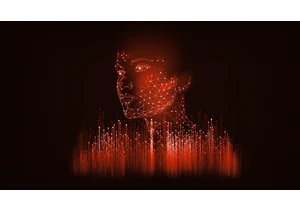On average, a clinician spends two hours outside of office time writing patient notes. Healthcare startup Suki wants to give that time back to doctors via its AI platform that works as an assistant, helping generate notes and select billing codes.
Suki has generated a lot of interest among investors and companies who want to partner with the startup, and raised $70 million in October, bringing its funding total to $165 million and its valuation to $295 million. Wednesday, it announced a partnership with Google Cloud, which will use Suki’s AI to help clinicians summarize patient notes and answer questions about the patient based on their data, to help doctors make decisions informed by a patient’s history faster.
At first blush, Punit Soni, Suki’s founder and CEO, may seem an unlikely candidate for launching a healthcare startup. Soni, an electrical engineer by training, had led Google’s Google Plus, Games, and Mobile divisions before serving as chief product officer at Flipkart.

Soni had a hunch that AI in healthcare could make a massive impact on people’s lives. He shadowed doctors for six months, including a friend in Boston. He was struck by how technology was impeding his friend’s job. In particular, he recalls watching his friend treat a veteran with depression and diabetes, and juggling several different record keeping systems while trying to focus on the patient. “He was writing stickies, giving his phone number to the patient so he could contact him after hours, while diving into the medical record system. This doctor really cared, but technology was hindering him,” Soni says.
Soni founded Suki in 2017, with the mission to lighten the administrative burden on clinicians. Here’s how it works: Using Suki’s platform on a computer or phone, clinicians can record their conversations with patients (with the patient’s consent, of course). Suki will then create a clinical note that the doctor can edit and review, which is pushed into the medical record system. In addition, Suki can automatically match a patient’s diagnosis to the relevant billing code.
Suki’s platform supports 99 specialties and over 80 languages. It has partnered with more than 300 health systems and clinics, including MedStar Health, which operates ten hospitals in the Baltimore/Washington D.C. region. The platform integrates with electronic health record systems such as athenahealth, MEDITECH, MEDENT, and Azalea Health.

MedStar Health has been using Suki’s platform for over four years. Currently, around 300 MedStar Health providers use it, with plans to expand to 2,000. Prior to using Suki, Liz Delasobera, chief medical officer for MedStar Ambulatory Services, noted her typical routine involved either taking notes during a patient visit or doing so afterwards at her desk. “If you take notes when the patient is there, you’re not making eye contact,” Delasobera says.
With Suki, Delasobera is able to pull up a patient’s details on her phone before walking into the room and record the meeting (after obtaining consent). “It also creates more patient satisfaction because you’re verbalizing more,” Delasobera says. “Often, we think things like, ‘I examined your heart, it sounds good,’ but we don’t actually say it to patients.”
Another provider found that their patient satisfaction scores increased tremendously after using Suki. Going forward, the MedStar Health team said their major feedback for Suki would be more features, such as being able to generate letters to patient employers or generating order proposals for other procedures.
“We’re writing about 3,000 notes a week and working 12-hour shifts,” Delasobera says. “Anything that gives us more time back in the day is a huge wellness improvement.”
Ak chcete pridať komentár, prihláste sa
Ostatné príspevky v tejto skupine


As I write this, the most pleasing sound is washing over me—gentle waves ebbing and flowing onto the shore. Sadly, I’m not actually on some magnificent tropical beach. Instead, the sounds of the s

The relentless hype around AI makes it difficult to separate the signal from the

I don’t know about you, but I tend to think about my favorite tech tools as being split into two separate saucepans: the “classic” apps we’ve known and relied on for ages and then the newer “AI” a

The official White House social media account is under fire for posts that resemble something typically found on the internet forum 4chan.
A post shared on February 14, styled like a Val

The prospect of banning the sale of so-called

